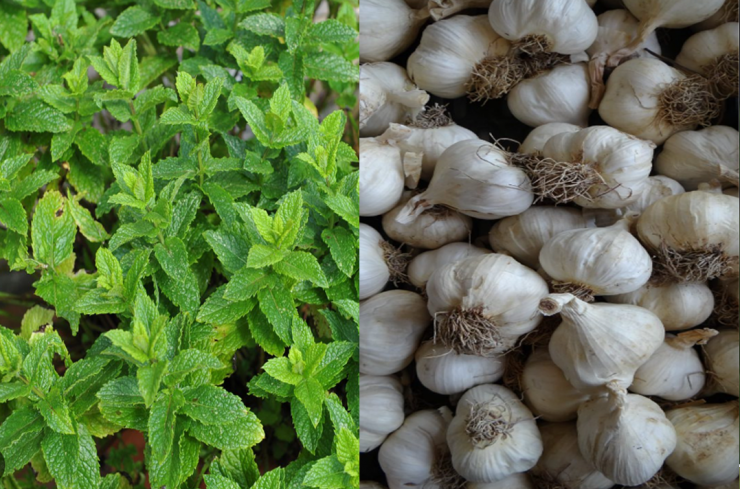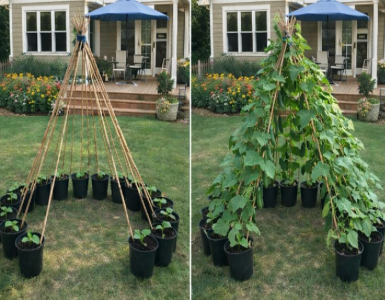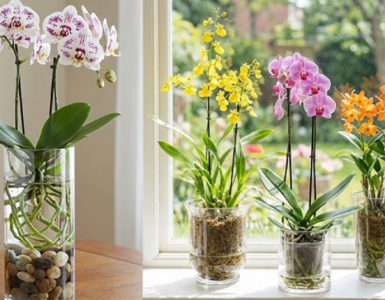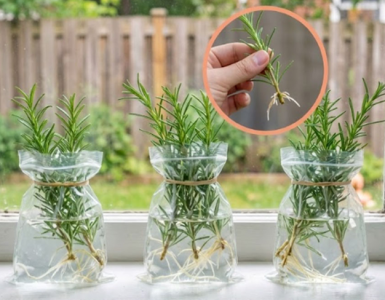In sustainable agriculture, managing pests naturally is key to protecting crops without harming the environment. Organic pesticides derived from herbs offer an effective and eco-friendly alternative to synthetic chemicals. Here are ten powerful herbs you can use to keep your crops healthy and pest-free.
1.Neem (Azadirachta indica)
Neem is renowned for its broad-spectrum pesticidal properties. The oil extracted from neem seeds contains azadirachtin, which disrupts the life cycle of pests like aphids, whiteflies, and caterpillars.
How to Use: Mix neem oil with water and a small amount of soap to create a spray.
2.Basil (Ocimum basilicum)
Basil repels mosquitoes, thrips, and flies. It also attracts beneficial insects like bees and butterflies, improving pollination.
How to Use: Plant basil near crops or prepare a basil-infused spray.
3.Garlic (Allium sativum)
Garlic’s strong smell deters pests like aphids, beetles, and caterpillars. It also has antifungal properties.
How to Use: Crush garlic cloves and steep them in water overnight to make a spray.
4.Mint (Mentha spp.)
Mint naturally repels ants, aphids, and cabbage moths. It’s also a deterrent for rodents.
How to Use: Plant mint around the garden or use mint oil diluted in water as a spray.
5.Thyme (Thymus vulgaris)
Thyme is effective against cabbage worms and whiteflies. It’s also a strong antifungal agent.
How to Use: Create a thyme spray by steeping fresh or dried leaves in water.
6.Chrysanthemum (Chrysanthemum spp.)
Chrysanthemums contain pyrethrins, natural compounds that target a wide range of pests, including ants, beetles, and ticks.
How to Use: Dry the flowers, grind them into powder, and mix with water for a potent spray.
7.Lavender (Lavandula spp.)
Lavender’s fragrant aroma deters moths, fleas, and flies. Its essential oils also have antifungal and antibacterial properties.
How to Use: Use lavender oil in a spray or plant lavender as a border around your crops.
8.Cilantro (Coriandrum sativum)
Cilantro, or coriander, repels spider mites and aphids. Its strong scent confuses pests and drives them away.
How to Use: Make a spray by steeping cilantro leaves in water.
9.Dill (Anethum graveolens)
Dill is effective against spider mites, aphids, and cabbage loopers. It also attracts beneficial insects like ladybugs.
How to Use: Grow dill near susceptible crops or prepare a dill-infused spray.
10.Rosemary (Rosmarinus officinalis)
Rosemary repels a variety of pests, including aphids, mosquitoes, and cabbage moths. Its strong aroma masks the scent of crops, confusing pests.
How to Use: Use rosemary essential oil or steep fresh rosemary in water for a natural spray.
How to Prepare Herbal Sprays
Harvest Fresh or Dried Herbs: Choose herbs known for their pesticidal properties.
Steep in Water: Soak herbs in water for 12-24 hours.
Strain and Dilute: Strain the mixture and dilute with additional water if necessary.
Add Soap (Optional): Add a small amount of natural soap to help the spray stick to plant surfaces.
Apply: Spray directly onto plants, focusing on the undersides of leaves where pests often hide.
Using herbs as organic pesticides is a sustainable and cost-effective way to protect your crops. These natural solutions not only manage pests but also enrich your garden’s biodiversity. Try incorporating these herbs into your pest management strategy for a healthier, more resilient garden.






Add comment